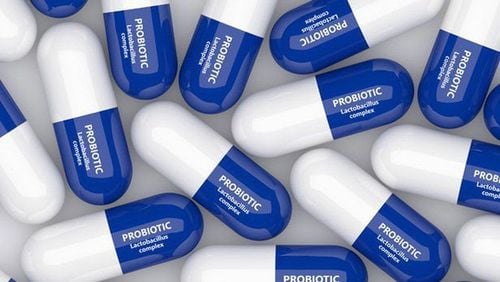This is an automatically translated article.
Fermented foods provide microorganisms for the body. Using fermented foods properly not only helps us eat better, but also improves many health problems.
1. What are fermented foods? Controversies over fermented foods are recent, but we have been enjoying and using fermented foods for about 10,000 years. The primary purpose of fermentation is to preserve food. Nowadays, using fermented foods simply enhances the flavor of the dish. Fermented foods such as Greek yogurt, kefir, cheddar and Stilton cheeses, fermented breads, pickled foods, kimchi, and kombucha fermented beverages.
2. Great benefits from fermented foods Besides enhancing the flavor of dishes, fermented foods contain several strains of good bacteria and yeasts. Using these foods helps to balance the good and bad bacteria in the gut. Using fermented foods has the following benefits:
2.1. Gut response The gut is considered the second brain because the gut strongly influences many health issues from mood and behavior to appetite and weight. The gut even affects the body's immune system. Consuming fermented foods increases beneficial bacteria in the gut, which helps promote intestinal health and function.

Thực phẩm lên men cung cấp các vi sinh vật cho cơ thể
2.4. Support high blood pressure Consuming fermented foods can reduce the risk of high blood pressure. Top choices are fermented soy foods like miso and natto. Fermented milk contains certain bacteria that help block an enzyme that is involved in raising blood pressure. In case of high blood pressure, eating fermented foods regularly can lower systolic and diastolic blood pressure.
2.5. Prevents heart disease It is possible that fermented foods help prevent cardiovascular disease. People who eat low-fat fermented milk - less than 3.5% fat - have a much lower risk of heart disease than people who eat fermented dairy foods or other high-fat foods.
2.6. Reducing the risk of bladder cancer Similar studies done in the Netherlands and Sweden showing cardiovascular benefits from fermented dairy foods also reported an association with a reduced risk of bladder cancer.
2.7. Breathe Easier In addition to reducing the risk of diabetes, kimchi can prevent asthma and eczema, also known as atopic dermatitis.
2.8. Digestive problems The gut microbiota of people with intestinal disorders is different from that of the general population. Fermented foods can help fight intestinal inflammation in irritable bowel syndrome and inflammatory bowel diseases like Crohn's and ulcerative colitis.
2.9. Boosts brain health Limited research shows that certain bacteria in fermented foods activate serotonin, a brain chemical that promotes feelings of happiness. Improving the gut microbiota may protect the central nervous system. That helps reduce anxiety or depression and enhances cognitive function, thinking ability, memory.
2.10. Reduced response to pain Abdominal pain, migraines, chronic fatigue syndrome (CFS) and long-term back pain are strongly associated with a poor gut microbiome. Studies show that increasing gut bacteria can help reduce sensitivity to pain and other symptoms of conditions like CFS.

Thực phẩm lên men có thể giúp chống lại chứng viêm đường ruột
2.11.Enhance oral health Consuming fermented foods that promote beneficial bacteria in the mouth leads to better oral health, less plaque and tartar. It can also help prevent tooth decay and gingivitis.
2.12.Strengthens Immune System The immune system relies on gut health to function properly. Intestinal imbalances can cause immune system disorders. Providing beneficial bacteria in fermented foods helps strengthen the body's immune response.
Different types of fermented foods have different strains of bacteria, so choose a variety of foods. Accordingly, you should choose foods that contain lactic acid bacteria - one of the best bacteria for the intestinal tract. However, keep in mind that not all fermented foods contain helpful bacteria.
Please dial HOTLINE for more information or register for an appointment HERE. Download MyVinmec app to make appointments faster and to manage your bookings easily.
Reference source: webmd.com













